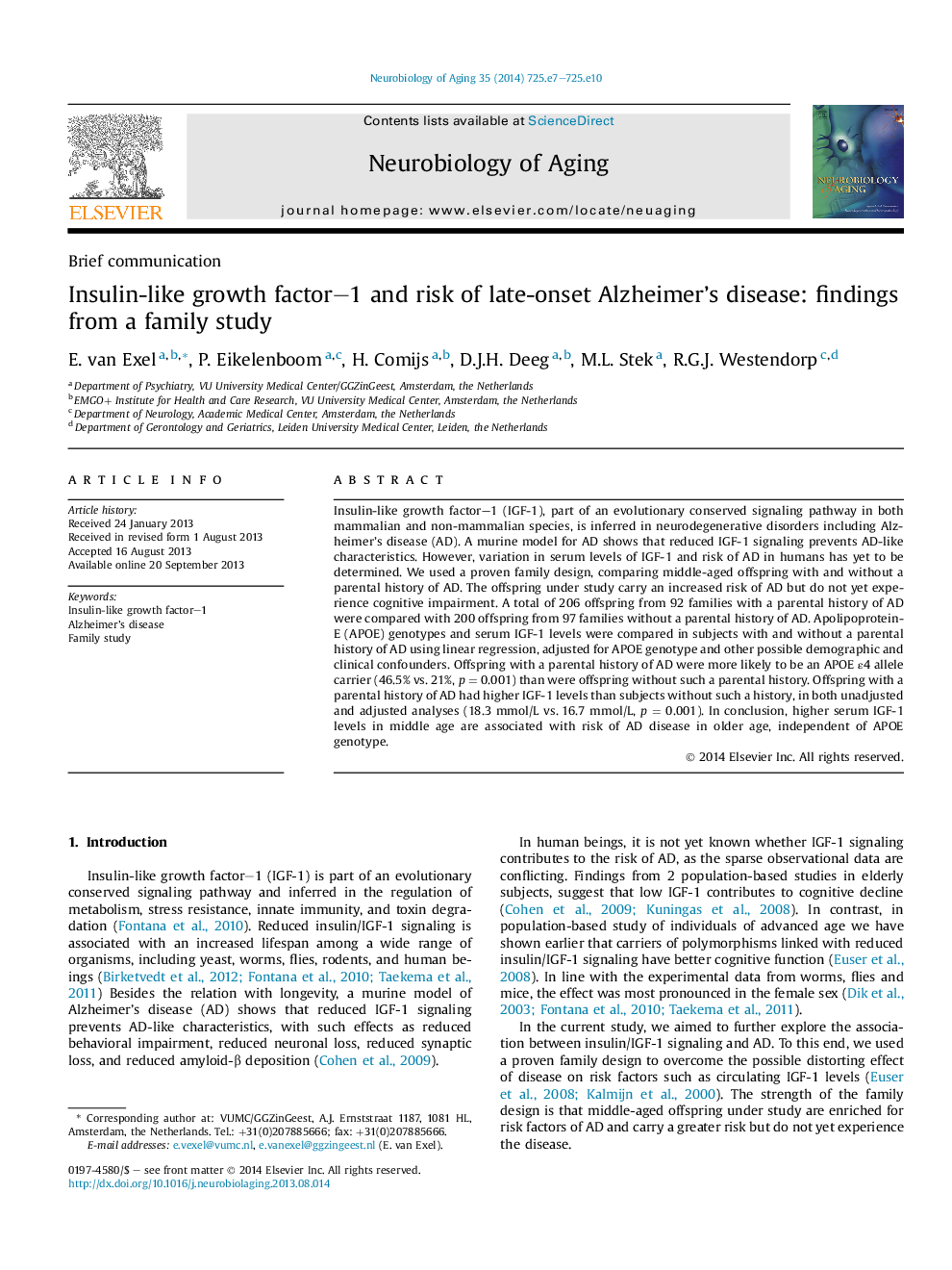| Article ID | Journal | Published Year | Pages | File Type |
|---|---|---|---|---|
| 6806584 | Neurobiology of Aging | 2014 | 4 Pages |
Abstract
Insulin-like growth factor-1 (IGF-1), part of an evolutionary conserved signaling pathway in both mammalian and non-mammalian species, is inferred in neurodegenerative disorders including Alzheimer's disease (AD). A murine model for AD shows that reduced IGF-1 signaling prevents AD-like characteristics. However, variation in serum levels of IGF-1 and risk of AD in humans has yet to be determined. We used a proven family design, comparing middle-aged offspring with and without a parental history of AD. The offspring under study carry an increased risk of AD but do not yet experience cognitive impairment. A total of 206 offspring from 92 families with a parental history of AD were compared with 200 offspring from 97 families without a parental history of AD. Apolipoprotein-E (APOE) genotypes and serum IGF-1 levels were compared in subjects with and without a parental history of AD using linear regression, adjusted for APOE genotype and other possible demographic and clinical confounders. Offspring with a parental history of AD were more likely to be an APOE ε4 allele carrier (46.5% vs. 21%, p = 0.001) than were offspring without such a parental history. Offspring with a parental history of AD had higher IGF-1 levels than subjects without such a history, in both unadjusted and adjusted analyses (18.3 mmol/L vs. 16.7 mmol/L, p = 0.001). In conclusion, higher serum IGF-1 levels in middle age are associated with risk of AD disease in older age, independent of APOE genotype.
Related Topics
Life Sciences
Biochemistry, Genetics and Molecular Biology
Ageing
Authors
E. van Exel, P. Eikelenboom, H. Comijs, D.J.H. Deeg, M.L. Stek, R.G.J. Westendorp,
